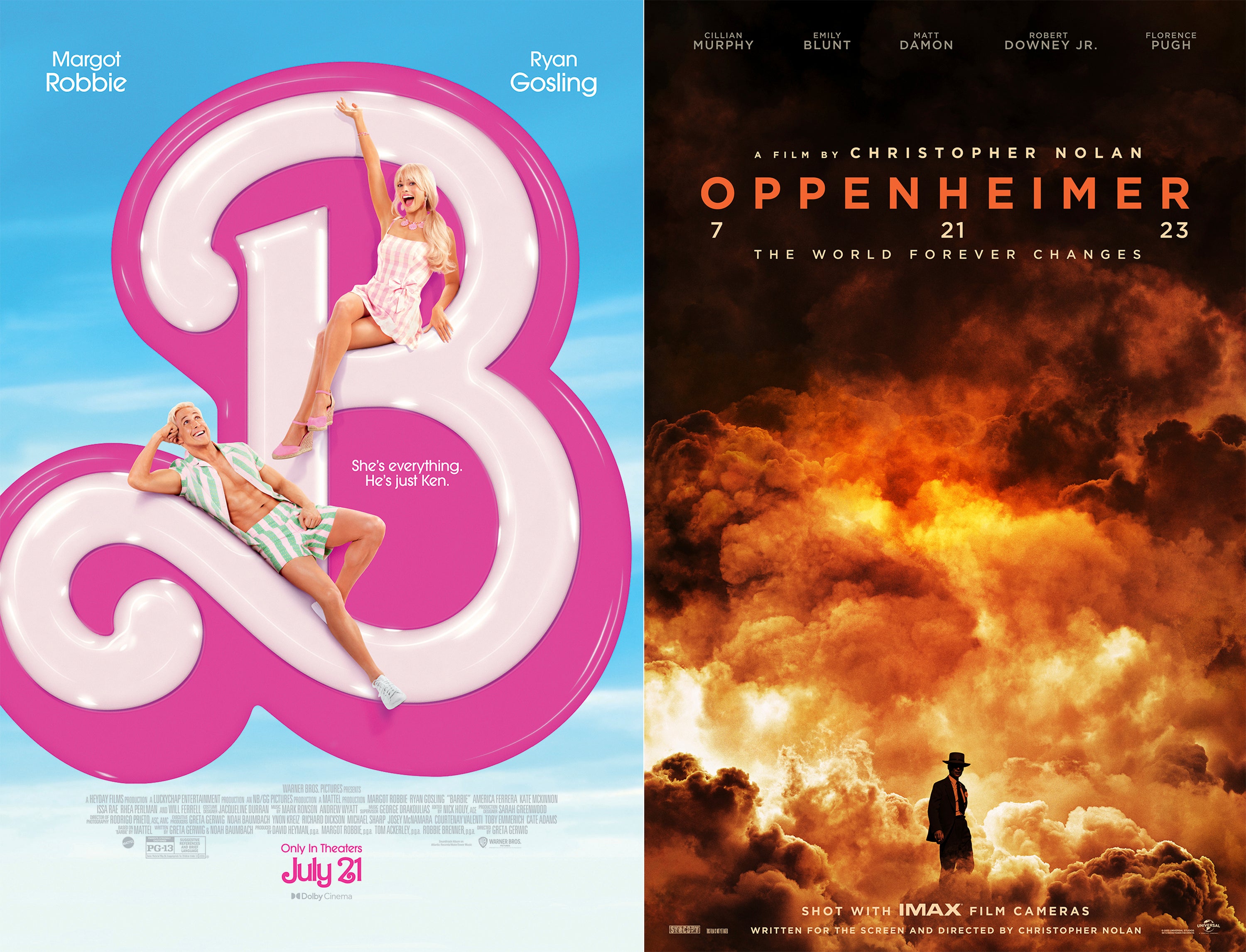Barbie isn’t anti-men – but Oppenheimer is anti-women
It may be the most nominated film at the 2024 Oscars, but the Christopher Nolan biopic is exactly like most other films, writes Amelia Loulli – and that’s the problem


Before I saw the Barbie movie, I was resolutely against ever seeing the Barbie movie. Despite the fact that as a child I loved Barbie, who I interviewed regularly for important radio segments in her coral peach ball gown, I decided that the last thing I needed was 90 neon-coloured-Margot-Robbie-filled minutes of a film which would obviously have nothing new to offer me; a grown-up feminist woman who stopped idealising the problematic Barbie aesthetic decades ago.
But then the reviews from angry men started rolling in. You only had to be vaguely near the internet after Barbie’s release to hear the resounding roars of the mostly middle-aged; outraged that such an abomination against “all men” could even be allowed to exist. The reviews began to read like dreamy promotional soundbites: “An alienating, dangerous and perverse film”, “They won’t be happy until we are all gay”.
These men were really, really wound up about this film. They loathed it. They were spitting fury at Greta Gerwig for creating a piece of such obvious, glaring, “anti-men, feminist propaganda”.
And so, when I was asked by one of my teenage children if I would be up for a day of “Barbenheimer”, I said “yes”: newly salivating at the potential of a project that could cause this much delicious backlash.
I decided I would swallow my aversion towards sustained exposure to powder pink, get Barbie watched, then chase it all away with a good dose of brooding grey, historically accurate cinema. Despite the promise of those furious reviews, I still expected to enter and exit the cinema despising Barbie and in awe of Oppenheimer.
During the five hours of media and popcorn consumption that followed, a chain reaction set in motion that left me changed. It made the vitriolic reviews of Barbie, calling Greta Gerwig’s masterpiece “anti-men”, even more comical. The irony was bright and clear to me: Oppenheimer is anti-women.
And the thing is that Oppenheimer is not different to most films. Because most films are anti-women.
We just don’t take to the internet to rage about it because we’re used to it; desensitised by the decades of cinematic women who exist only to paint their lips red, bare their breasts and give the important male protagonists something to play with.
Is Barbie anti-men? Oh, I hope so (it isn’t, it’s anti-patriarchy), but also, frankly, I don’t care. Because if it is – after decades of movies made by male directors like Oppenheimer’s Christopher Nolan, it has good reason to be.
And it does what it so brilliantly does within the sparkly, imaginary bubble of an entirely fictional world where the male characters it side-lines are literally plastic dolls, all called Ken (except Alan); fake toys who simply can’t even breathe. Anti-women films like Oppenheimer on the other hand, sideline or completely erase very real, flesh-and-blood women who lived whole lives and made significant contributions to our world.
So, if you’re a man who has watched Barbie and felt angry or irritated or just plain strange while watching the depiction and treatment of the Kens – then welcome to cinema. That is what it feels like to be a woman watching Hollywood movies most of the time.
But here’s the thing – that poor Ken doll you’re lamenting over, is not Leona Woods; who at 23 was one of the youngest female scientists the Manhattan project employed. Ken, unlike Leona, was not present at the first nuclear chain reaction and Ken did not have to do what Leona did – which was to conceal her pregnancy until two days before her baby was born. Ken is also not Elizabeth Graves; a scientist entirely essential to the project’s success who was completing an experiment when she went into labour and did not stop the experiment until it was finished, timing her contractions with a stopwatch. Let’s see Christopher Nolan make a three-hour-long film about that.
Neither Woods nor Graves feature in Oppenheimer, which, like so many anti-women films, manages to assume such an air of authority that it can leave us assuming that its astounding lack of female representation must be down to its admirable commitment to historical accuracy. I’ve heard the cries – “It is called Oppenheimer after all. How much do you expect it to worry about its women?” And perhaps it’s true – you can’t very well expect a film about the very intelligent physicists who tackled the science behind creating the atomic bomb to change facts just for representation can you?
No. But you can and should expect such a film to accurately and fairly represent the female scientists who were, in fact, right there – alongside Oppenheimer and his men, ensuring the Manhattan Project’s success. Perhaps it might have been appropriate if viewers left the three-hour epic clear in the knowledge that Kitty Oppenheimer didn’t only drink herself to distraction while taking care of screaming children and dropping a hip flask out of her handbag at every possible moment; she was also a trained botanist who was employed at Los Alamos to take blood and test the levels of radiation exposure of her colleagues.
More than 600 women worked on the Manhattan Project at Los Alamos alone, yet the only female scientist given any recognition in Nolan’s world is Lilli Hornig, who speaks only briefly, mostly in opposition to the bomb’s use. And what about Charlotte Serber? Who Nolan depicts as Oppenheimer’s secretary, completely erasing her vital work as scientific librarian for the project’s “secret library” and who, with no formal training, became the only female group leader, overseeing a staff of 12 people while also risking her safety in counter-espionage efforts.
Oppenheimer doesn’t only fail the Bechdel test, it fails to represent the real women who contributed so significantly to that morally fraught turning point in history. Those women were physicists, engineers, chemists, mathematicians. They existed. And, as is so often the case, many of their achievements have been forgotten and remain unrecognised, by both history and cinema.
As I continue to emerge from my Barbenheimer experience, researching the lost women of the Manhattan project and occasionally still basking in the disgust of all those angry men who need to hate the work of art that is Barbie, it becomes ever clearer: anti-women is the benchmark of mainstream filmmaking and some people are simply unable to deal with the plastic Manolo Blahnik being on the other foot.






Join our commenting forum
Join thought-provoking conversations, follow other Independent readers and see their replies
Comments